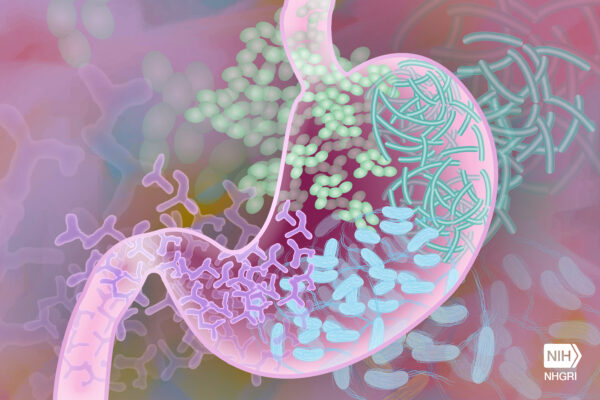
Gut bacteria (Photo: NIH)
A recent study led by UC Irvine has made significant progress in understanding Gulf War illness, GWI, a chronic condition affecting Veterans who served in the 1990–1991 Gulf War. The research identifies gut microbiome imbalances as a key factor in GWI, laying the groundwork for potential new treatments. This study, published in the International Journal of Environmental Research and Public Health, is the most comprehensive to date, building on earlier research that initially suggested a link between gut bacteria and GWI.
Gulf War illness manifests through various symptoms, including chronic fatigue, cognitive difficulties, pain, and gastrointestinal issues, which have persisted in affected Veterans for decades. The UC Irvine study, led by Professor Saurabh Chatterjee from the Joe C. Wen School of Population & Public Health, involved analyzing stool samples and fatigue data from 89 Gulf War Veterans—63 with GWI and 26 without. The research found distinct differences in the gut bacterial composition between those with and without the illness.
Veterans with GWI were discovered to have a unique mix of gut bacteria, known as Bray-Curtis beta diversity, which differs significantly from that of unaffected individuals. This imbalance impacts gut, immune, and brain health. Specifically, Veterans with GWI exhibited higher levels of less beneficial bacteria such as Blautia, Streptococcus, Klebsiella, and Clostridium, and lower levels of beneficial bacteria like Akkermansia and Bacteroides.
The study also employed advanced machine learning algorithms to identify two bacteria, Coprococcus and Eisenbergiella, as critical indicators of GWI. Remarkably, the algorithm was able to correctly distinguish between Veterans with and without GWI nearly 75% of the time using these bacterial markers. Additionally, the study found that higher fatigue levels in affected Veterans were associated with altered gut bacterial diversity, particularly in species like Lachnospiraceae and Blautia.
These findings suggest that targeting the gut microbiome could lead to new treatments for GWI symptoms. Professor Chatterjee, who also holds positions at the UC Irvine School of Medicine and the Long Beach VA Medical Center, stated that while this study represents a significant advancement, it is just the beginning of more in-depth research into the role of gut bacteria in GWI. The study’s outcomes could pave the way for therapies that substantially improve the quality of life for Veterans suffering from this condition for decades.













I’m a GWI victim who subsequently developed colon cancer. Is GWI the new name for Gulf War Syndrome? Anyway, after my surgery for the cancer, I had 3 nasty bouts of an infection called C.diff. That bacteria is an excess of Clostridioides difficile in your gut. Very nasty stuff!!!! This new study may very well explain my C.diff infections. Can you get my name and contact info to Dr. Chatterjee? I would love to be a part of any follow-on studies. Thanks!
This is very encouraging and I appreciate the efforts of the researchers. I am so tired of suffering.